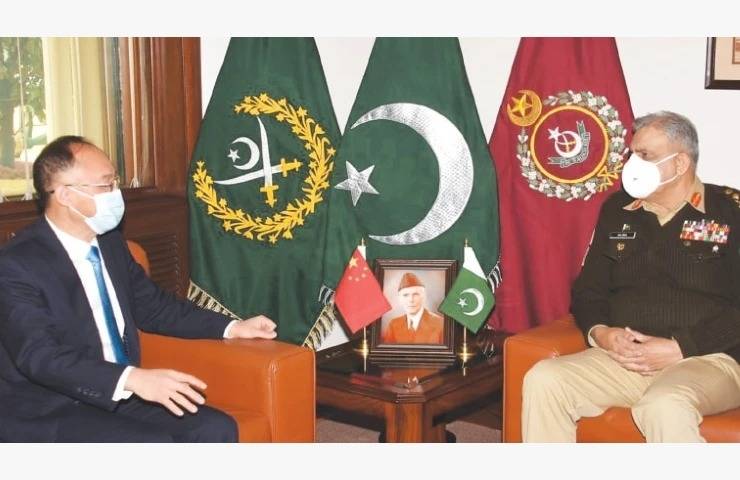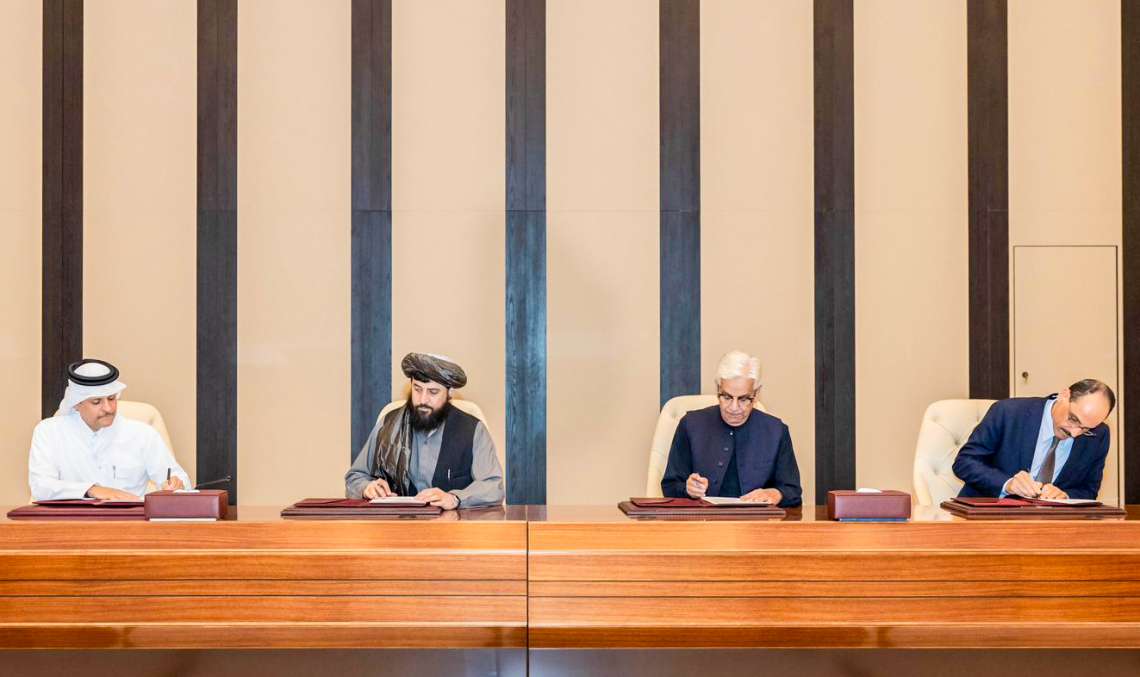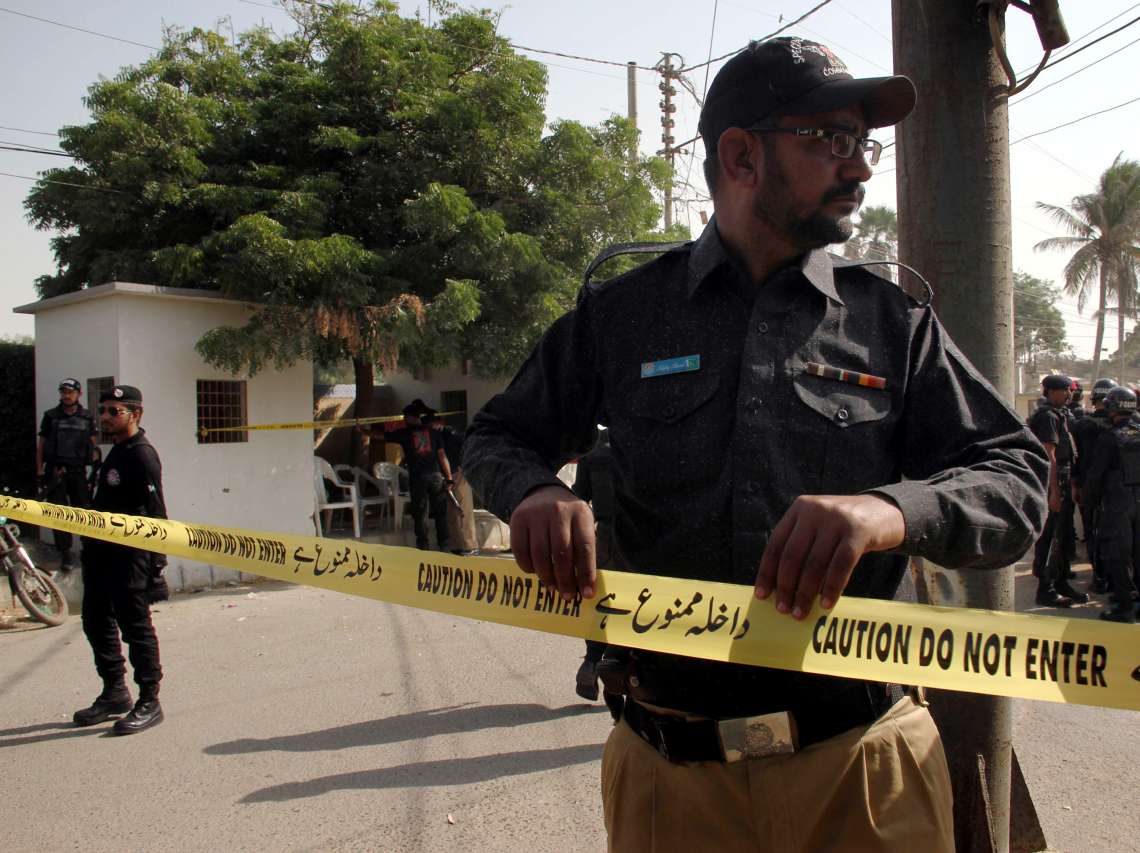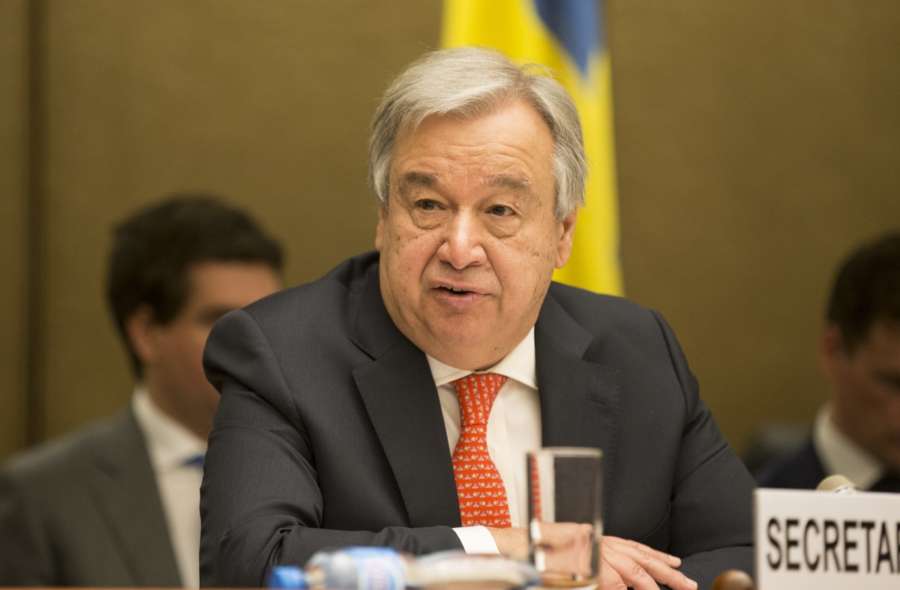The CPEC project has been in limbo since last year owing to attacks on Chinese nationals. China had repeatedly expressed its displeasure with Pakistan over lax security…writes Rahul Kumar
Chinese Ambassador to Pakistan, Nong Rong met Pakistani army chief General Qamar Javed Bajwa on Wednesday to discuss the China-Pakistan Economic Corridor (CPEC), work on which has all but stopped due to security issues and Pakistan’s inability to pay Chinese companies.
The meeting comes ahead of Prime Minister Imran Khan’s upcoming three-day visit to China from Feb 3-5 to attend the opening ceremony of the 2022 Winter Olympics and hold bilateral talks.
The Inter-Services Public Relations (ISPR) said in a statement that the meeting was held at Pakistan Army’s General Headquarters in Rawalpindi.
The CPEC project has been in limbo since last year owing to attacks on Chinese nationals. China had repeatedly expressed its displeasure with Pakistan over lax security. An attack on Chinese engineers near the Dasu hydropower plant at Khyber Pakhtunkhwa in July 2021 killed nine Chinese after which China stopped work on the project.
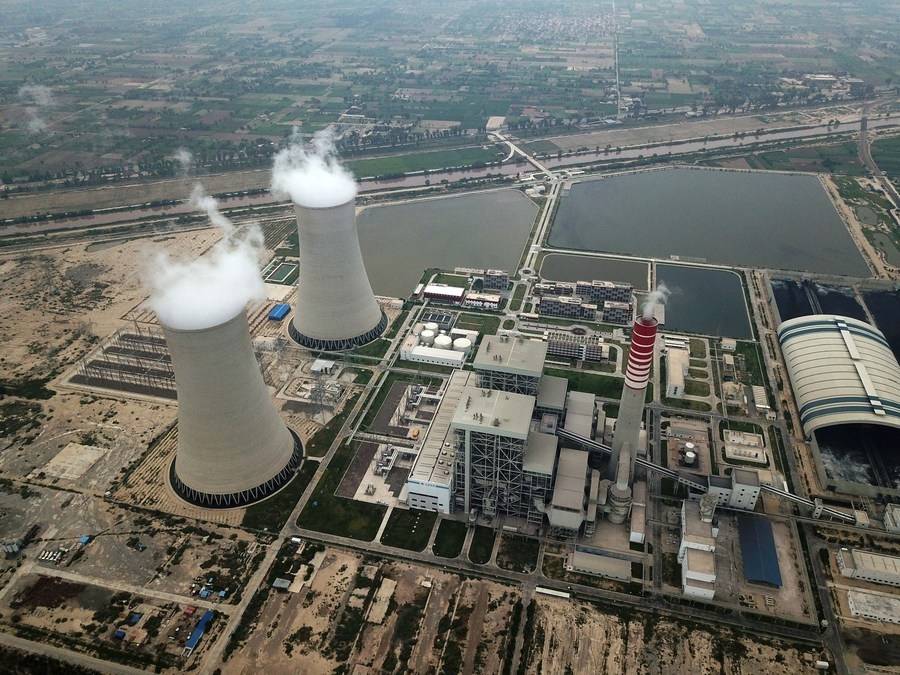
In another serious attack, Baloch nationalists targeted a hotel in Quetta in April 2021 where Nong Rong was staying.
Besides these two attacks, many Chinese nationals have been attacked in other cities in Pakistan as local communities feel frustrated with exploitative CPEC projects.
In a bid to placate China, Islamabad has agreed to compensate the Chinese workers killed and injured in the Dasu attack. However, for many months a Pakistani committee tasked with fixing a suitable compensation could not take a decision, leading to complete stoppage of the project.
Gen Bajwa assured the Chinese ambassador of Pakistan’s commitment to providing full security to Chinese projects and citizens in Pakistan.
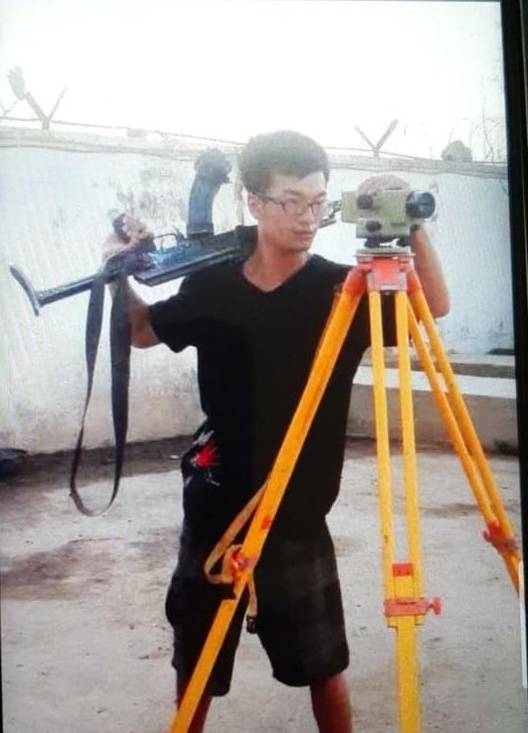
Besides the adverse security situation for the Chinese nationals, another major hurdle in the CPEC projects has been the non-payment of dues to Chinese power companies. Pakistan owes nearly Rs 230 billion to Chinese companies for producing power under the CPEC projects. Owing to a dire financial crisis, Pakistan has been holding the payments from 2018, despite giving assurances to China.
Strong, and often violent opposition, to the project by local communities too has resulted in negative publicity and halt of work. The financially ambitious project continues to face the ire of Baloch nationalist groups as well as local people.
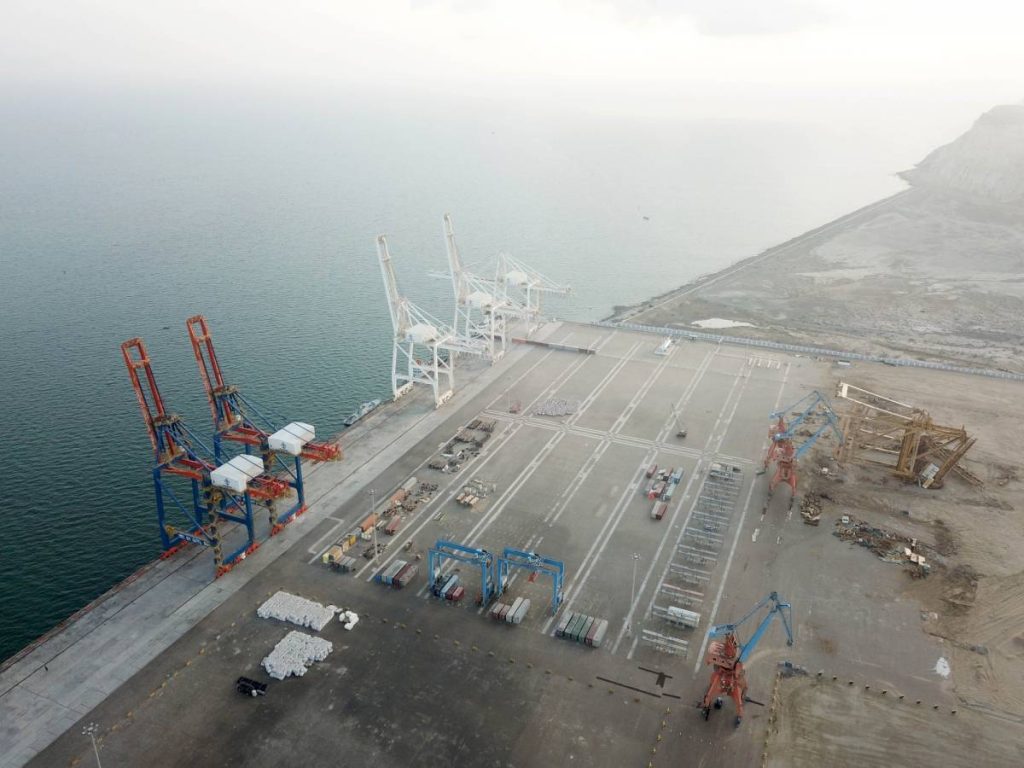
Mass agitation in Gwadar port city of Balochistan put the spotlight on how the CPEC projects have not only not created local jobs but in fact hindered the livelihoods of people.
Beijing has not only stopped work on the various CPEC projects but has also not made any commitments about other rail and road projects. Owing to slow place of work and also because of safety reasons, the CPEC in Balochistan is under stress.
The ISPR said in the statement that the Chinese ambassador was satisfied with the “progress on CPEC and reaffirmed the need for timely completion of the remaining projects.” The two also discussed regional security, especially in the context of Afghanistan where the Taliban took over in mid-August after the departure of US and NATO troops.
(The content is being carried under an arrangement with indianarrative.com)


